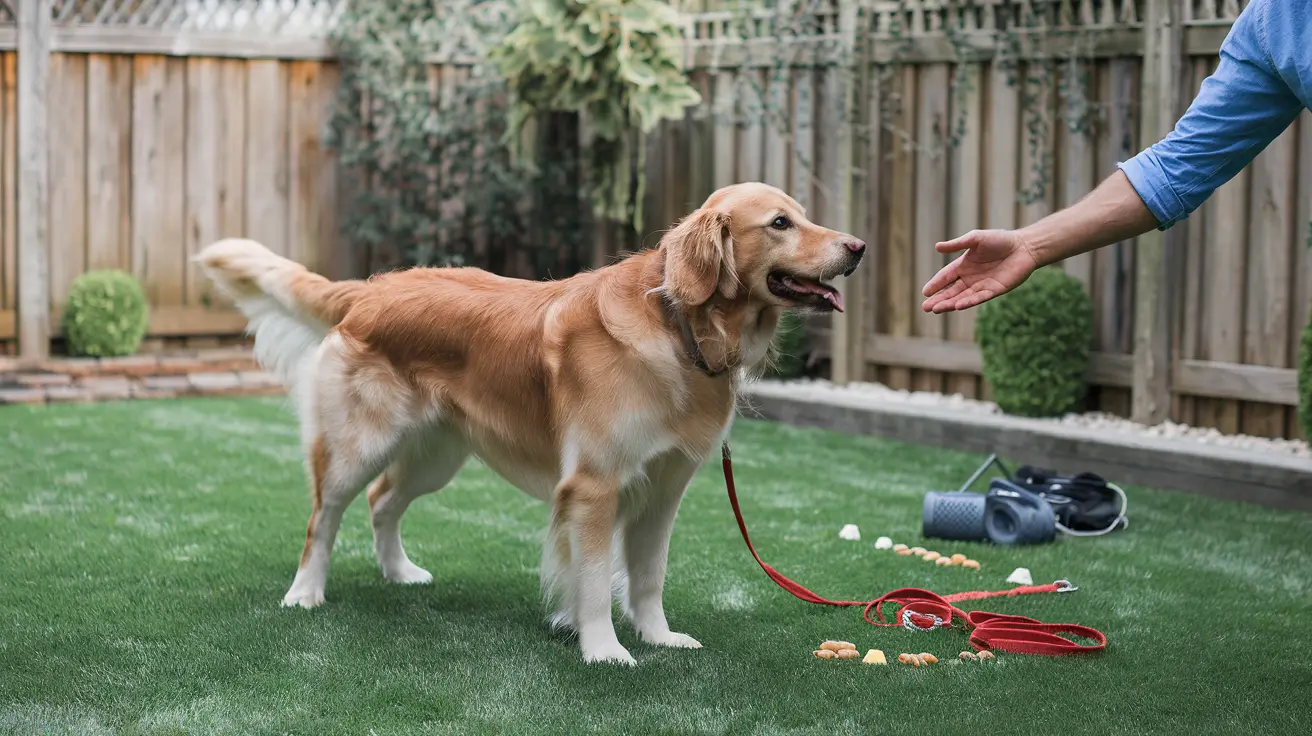Introduction à la coprophagie
La coprophagie, terme scientifique désignant la consommation de selles, est un comportement qui intrigue de nombreux propriétaires de chiens. Il n’est pas rare d’observer un animal de compagnie aimé adopter cette habitude peu agréable, ce qui pousse les propriétaires à se demander pourquoi leur compagnon y cède. Bien que la coprophagie ne soit pas un trait souhaitable chez un animal familial, comprendre ses origines et ses raisons est essentiel pour la gérer efficacement.
Comportement coprophagique normal chez le chien
La coprophagie peut être un comportement normal dans certains contextes. Par exemple, les mères qui allaitent mangent souvent les selles de leurs chiots pour maintenir un environnement propre dans la tanière. Ce comportement instinctif est crucial pour la santé et l'hygiène des jeunes. De plus, d'un point de vue évolutif, la coprophagie est considérée comme un comportement hérité des loups. Les loups consommaient des excréments frais pour garder leurs tanières exemptes de parasites transmis par les selles, un comportement que certains chiens ont conservé. En outre, les chiens peuvent être attirés par les selles d'autres espèces, comme celles des chevaux ou des chats, en raison de la présence de certains nutriments, bien que cela puisse aussi les exposer à des bactéries nocives.
Causes anormales de la coprophagie
Si certaines formes de coprophagie sont considérées comme normales, d'autres signalent des problèmes sous-jacents. Les chiens peuvent adopter ce comportement pour attirer l'attention, surtout s'ils ont appris qu'il provoque une réaction de la part de leurs propriétaires. Des problèmes de santé, tels que des maladies intestinales ou des carences nutritionnelles, peuvent également conduire à la coprophagie. L'anxiété, y compris l'anxiété de séparation, est un autre déclencheur, où les chiens peuvent manger des selles comme comportement de déplacement. De plus, les chiens punis pendant l'apprentissage de la propreté peuvent manger leurs selles pour dissimuler les preuves, par crainte de la réaction de leur propriétaire.
Stratégies pour prévenir la consommation de selles
Pour freiner la coprophagie, il est essentiel d'employer des stratégies efficaces. Le renforcement positif et l'entraînement peuvent rediriger le comportement en récompensant les chiens qui laissent les selles tranquilles. La gestion de l'environnement, comme l'utilisation de barrières pour animaux ou le placement des bacs à litière hors de portée, peut empêcher l'accès aux selles. Des ajustements alimentaires, y compris l'utilisation de compléments rendant les selles moins appétentes, peuvent également être bénéfiques.
Solutions spécifiques selon les situations
Différentes situations nécessitent des solutions adaptées. Pour les chiots, un apprentissage cohérent de la propreté et le nettoyage immédiat des selles sont cruciaux pour empêcher le développement de cette habitude. Pour les chiens souffrant d'anxiété ou de problèmes liés au confinement, offrir plus d'espace, un environnement plus calme ou des activités d'enrichissement peut aider. Le retrainement des chiens adultes demande patience et renforcement positif constant pour briser le comportement acquis.
Outils et aides pour l'entraînement
Plusieurs outils peuvent aider à apprendre aux chiens à éviter la consommation de selles. Les laisses, les clickers et les pochettes à friandises sont utiles pour renforcer les comportements positifs. De plus, les probiotiques et certaines friandises à mâcher peuvent dissuader le comportement en modifiant le goût des selles, les rendant moins appétentes pour les chiens.
Conclusion : maintenir un environnement sain
Comprendre les causes sous-jacentes de la coprophagie et appliquer des stratégies appropriées de façon cohérente est la clé pour gérer et prévenir ce comportement. En traitant à la fois les raisons normales et anormales de la consommation de selles, les propriétaires peuvent aider leurs animaux à rompre avec cette habitude et assurer un mode de vie plus sain pour leurs compagnons. L'application constante de ces stratégies améliore non seulement le bien-être du chien, mais renforce également le lien entre le propriétaire et l'animal.






